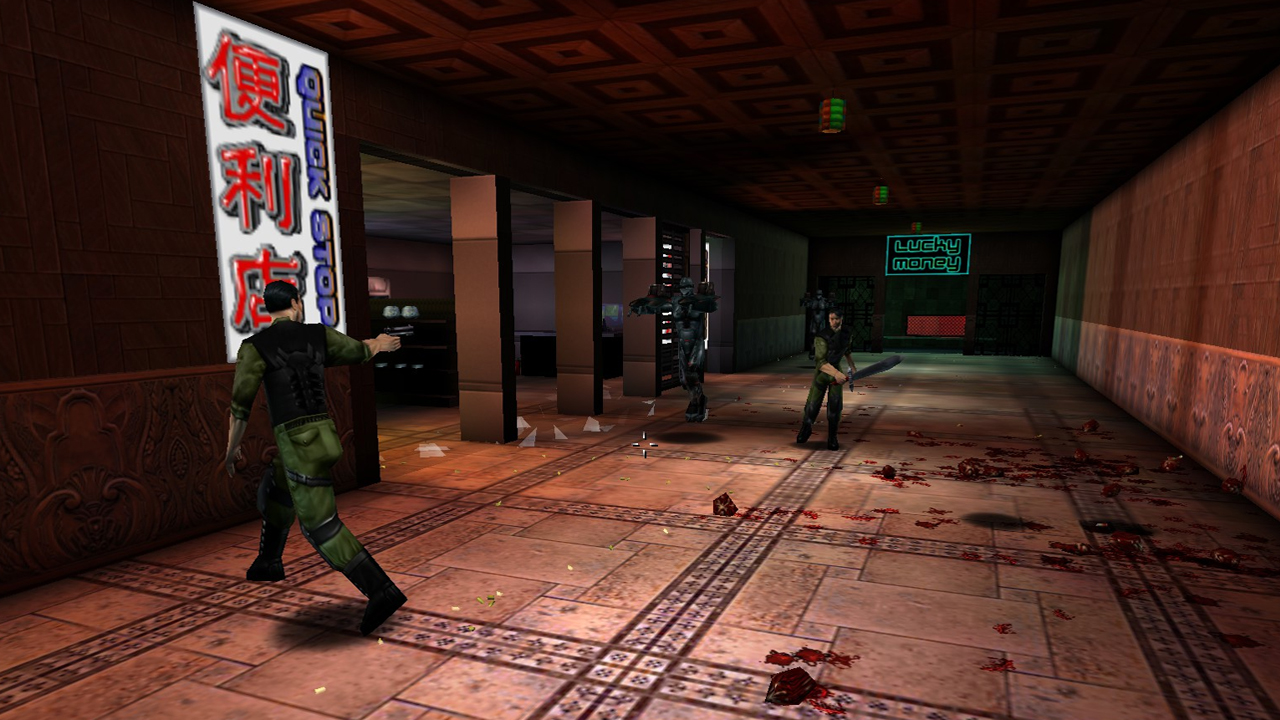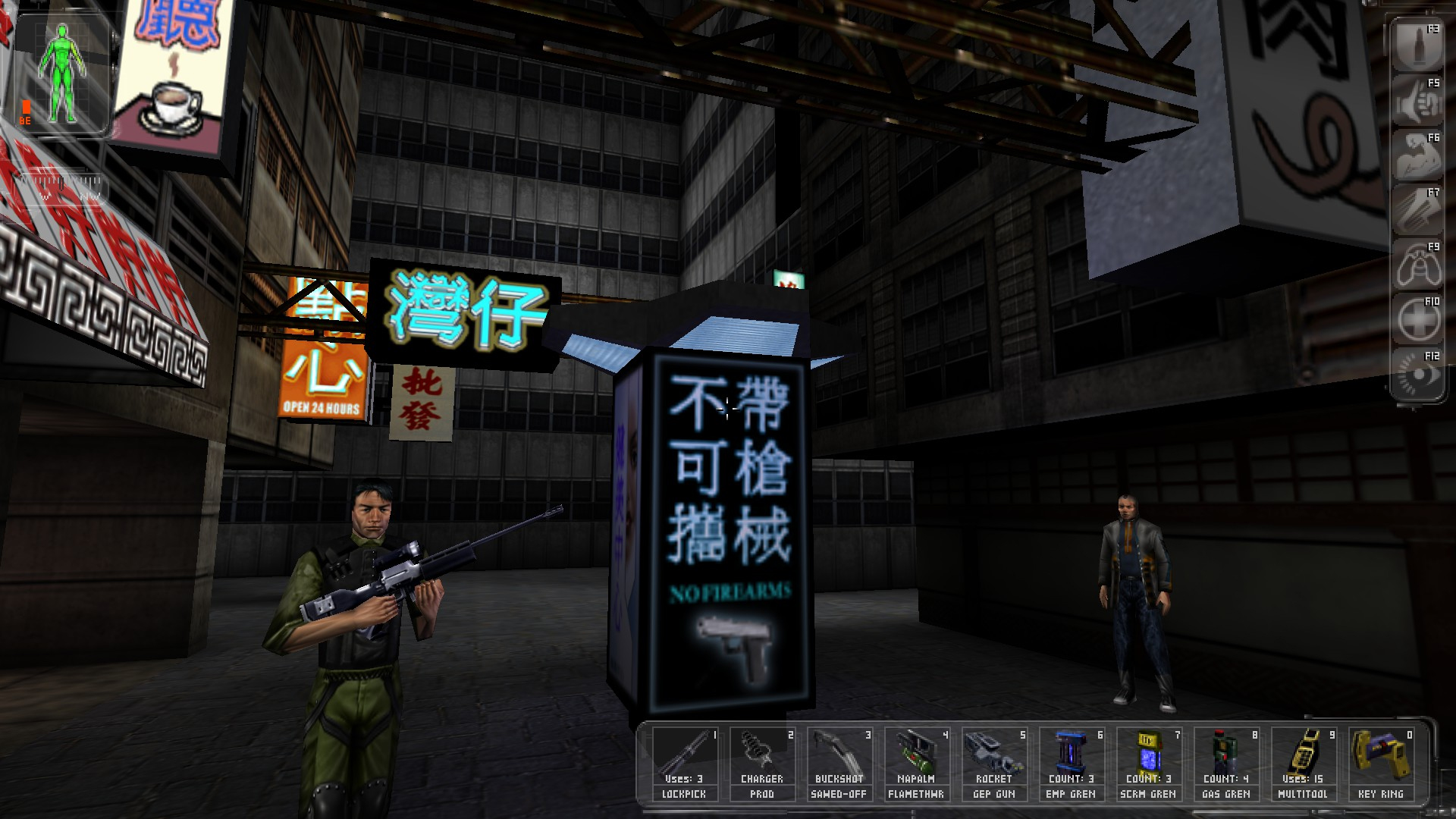How Deus Ex inspired a Wikipedia-style murder mystery
Neurocracy is an episodic adventure set across a near-future encyclopaedia.

Have you ever fallen down a 'wiki-hole'? Or played Six Degrees of Wikipedia, finding the shortest hyperlink path from, say, Denzel Washington to the page for Boring, Oregon? The truth is, we'd gamified online encyclopaedias long before writer Joannes Truyens got to them.
"There's an immediate literacy there," he says. "Wikipedia as a medium lends itself to non-linear storytelling."
The goal of Truyens' game, Neurocracy, is to solve a murder by digging through a near-future version of the site—bouncing between pages, unpicking the revision history as events unfold and finding the human drama hidden between the lines of dry, matter-of-fact prose.
The tagline of the fictional Omnipedia is 'building your world'; Truyens' own touchpoint for worldbuilding was Deus Ex. "I soaked up all the attention to detail in its depiction of a grounded near-future," he says, "which made me want to create such a world of my own."
It turns out there's a sweet spot for storytelling that straddles the present and the future—Truyens considers the more distant sci-fi of Deus Ex's sequel, Invisible War, "outlandish and crass" and went back and forth on the exact year of Neurocracy's setting.
"I initially chose the year 2049 to avoid the 2050s, because it's such a ubiquitous decade in near-future sci-fi," he says. "Then I shifted to 2060 when Blade Runner 2049 came out, and finally I want back to 2049 because fuck you Blade Runner, you don't own that number."
There's a sweet spot for storytelling that straddles the present and the future.
Familiar wiki tropes root Neurocracy in a recognisably real-world internet—from the personal appeal of Omnipedia founder Tony Hsiung, who grins at the top of the page as he scrounges for donations, to the pop-up that asks you to approve the use of cookies. But they rub against hard sci-fi, like the tick box for automatic authentication "if you are equipped with a neurometric colloid".
Keep up to date with the most important stories and the best deals, as picked by the PC Gamer team.
Inspired by 80 Days and Heaven's Vault, the Neurocracy team decided that the game's story should be approachable from any angle. And so, while you can dive straight in at the assassination of a Beijing business magnate, it's just as viable to reach the central mystery by reading all about the format of a fictional reality TV show, Are You For Real?

The real deal
The details of the "first show in the elimination romance competition genre generated and hosted entirely by a dreaming AI" ring true. If you've watched enough Love Island, you'll be familiar with the way producers nudge their pawns towards "intimacy or discord", as Neurocracy puts it, as well as the dark undercurrent of contestant tragedy that lurks beneath the 'Controversy' tab.
That authenticity makes perfect sense once you learn that Are You For Real? was dreamed up not by an AI, but Leigh Alexander, the narrative designer who spent the summer of 2019 obsessed with the televised villa fumblings and relationship betrayals of British 20-somethings, before working on the official Love Island dating game.
Truyens had previously been a fan of Alexander's work in videogames journalism, and the way her writing depicts, in her own words "the compelling, fascinating, beautiful, terrifying car crash of humanity and technology". She's one of many contributors who lend Omnipedia its convincing context.
Our world may be yet to witness its first murder trail in which the defendant claims to have been brainwashed by the AI in charge of a reality television set. But on the day of my interview with Truyens, Love Island viewers are in uproar over the show's use of an incriminating photograph to effectively break up a couple. When art imitates life, the reverse seems to inevitably come true.
Which brings us back to Deus Ex, and its fictional plague, the Gray Death, which has long fascinated Truyens. In Neurocracy, the organisation behind the neural colloids was created to improve public health, in the wake of a pandemic caused by contaminated tuna—"all in place before COVID-19 was but a whisper".
"The movie Contagion was a huge deal for me," Truyens says. "Precisely because it let the science of disease outbreaks dictate the plot." Little did he know that the same film would ultimately inspire the UK health minister too.
Jeremy Peel is an award-nominated freelance journalist who has been writing and editing for PC Gamer over the past several years. His greatest success during that period was a pandemic article called "Every type of Fall Guy, classified", which kept the lights on at PCG for at least a week. He’s rested on his laurels ever since, indulging his love for ultra-deep, story-driven simulations by submitting monthly interviews with the designers behind Fallout, Dishonored and Deus Ex. He's also written columns on the likes of Jalopy, the ramshackle car game. You can find him on Patreon as The Peel Perspective.

